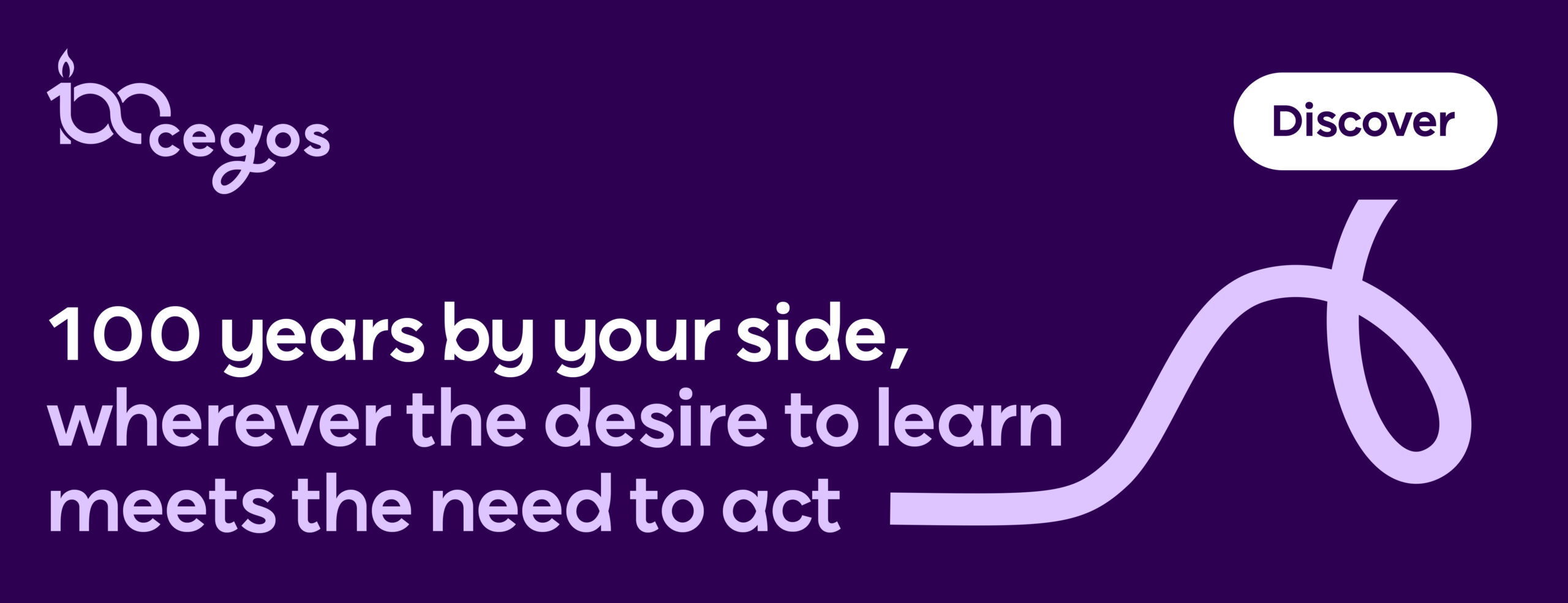
By imposing the work-from-home model as the new organisational norm, the pandemic propelled hybrid management to centre stage of our concerns. In the post-Covid world, managers will have to reinvent their attitude and practices, shake their habits up and establish new rituals. So, ready for a change?

Hybrid management: the new normal
The Covid-19 crisis prompted the emergence of a new concept: hybrid management, which simply means managing both employees working from home and those working on site. Once put into practice, hybrid management triggered a flurry of questions in the workplace. "Whether you see it as a managerial, organisational or even legal problem, hybrid working is a new normal", points out Christophe Perilhou, head of the Cegos Group's Learning & Solutions unit.
Given that the trend is here to stay, we should be seeing it as new opportunities:
- An opportunity to shed the "command and control" mentality, which the new reality of work has rendered inoperative;
- An opportunity to reinvent practices and mould more agile teams;
- An opportunity to speed up the company's transformation and turn it into a competitive edge.
"More importantly, organisational hybridisation is no longer an option. According to a Mazars study, 73% of Gen Zers want to be able to organise their working hours as they like. Failing to take this expectation into consideration would be to miss out on a major talent pool," says Christophe Perilhou.
Hybrid management: how to get organised?
"The health crisis has shown us that it is possible to work remotely. The majority of companies, including those initially most reticent, have taken the idea on-board. What's more, the teleworking agreements signed have sped up our organisations' hybridisation," notes Christophe Perilhou.
However, now that work groups have been dispatched to the four corners of France, "working together" is something of a vague notion. During the months of lockdown, companies realised that their compartmentalised mode of operation had reached its limits. Now, everything has to be reinvented. For Christophe Perilhou, this "blank page" should be written collectively.
"First of all, by asking themselves the right questions," he says. When is it necessary to work on site? What times need to be set in stone? What rituals do we need? Which tasks are suitable for being performed from home and which are not? What skills do we need to acquire?
These are some of the questions that have to be put on the table in order to address the organisational challenge. "There are no one-size-fits-all answers to these questions. The best idea is just to try different organisational models and tweak them as and where necessary." This way, the company will have a chance to remodel its mindset", explains Christophe Perilhou.
Read our post on the 8 tips to enjoy hybrid working
Hybrid management is shaking up team leadership
The 2008 subprime crisis had already challenged the "command and control" model. Will the Covid-19 crisis oust it once and for all in exchange for horizontal, trust-based models? What we know for sure is that hybrid management has an impact on the way companies gauge the value of work. As a result, managers' whole system of steering needs to be reinvented. "With the growing prevalence of working from home, it is no longer possible to judge a team member's contributions on their hours of presence. "Management by objectives makes sense, provided the objectives are not limited to those discussed during the annual performance appraisal," stresses Christophe Perilhou.
In practice, focusing your team members on a given priority for three months is more compatible with hybrid management. Two techniques can prove effective here: the "delimiting" technique, which consists in sectioning off an area while working towards an objective, and the "stay interview" technique, aimed at probing team members' motivational drivers. On the managers' side, useful skills to develop include being able to delegate, accepting to let go, and learning to unlearn. "It is by combining all of these approaches that managers will be able to think outside the box", he believes.
No hybrid management without mastering digital tools
The successive lockdowns, followed by the resumption of work on site with mixed teams have posed a number of difficulties from a technical viewpoint. From one day to the next, face-to-face discussions and meetings morphed into remote, online events. "Digital natives" and "baby boomers" alike were asked to navigate video conferencing solutions, collaborative workspaces and document-sharing spaces… in short, a panoply of tools that called for a considerable degree of agility on the teams' part. "Hybrid working adds a level of complexity to leadership. In particular, it requires leaders to hold fewer meetings but pack more added value into them," explains Christophe Perilhou.
To ease collaborative working and help team members work remotely in project mode, managers can create communities and encourage team members to become actively involved in them. "This new approach calls on managers' soft skills: their creativity and ability to listen," he points out. On the company's side, the adoption of digital work methods implies an IT infrastructure that is capable of hosting a digital workplace. Here again, companies are counting on their managers to raise their teams' awareness of data security.
Well-being at work: more than ever a mission for managers in hybrid mode
In a tense context, employees' workload, the many demands on their time and attention, and the increased pressure on getting results are heightening the competition between different work areas and raising the bar on results. As a result, employees' physical and mental health are being undermined. On top of this, the Covid-19 crisis has generated various problems including isolation, hyperconnectivity and a skewed work-life balance. Even if companies are now tackling the issue of their employees' health and safety head-on, the organisational arrangements entailed in hybrid working are accentuating the vulnerabilities.
"Hybridisation poses an additional risk to the quality of life at work. Against this backdrop, companies need to take a kind, well-meaning approach to management. That means caring about the teams' well-being, taking their feelings and emotions into account, picking up the weak signals in spite of the distance…", says Christophe Perilhou. Paying greater attention to your teams' well-being, establishing new rituals to pick up any weak signals of distress, organising events to prevent the teams from losing their social contact with each other are all possibilities that managers should consider.
If you need help incorporating hybrid management skills among your managers, get in touch with Cegos today.










